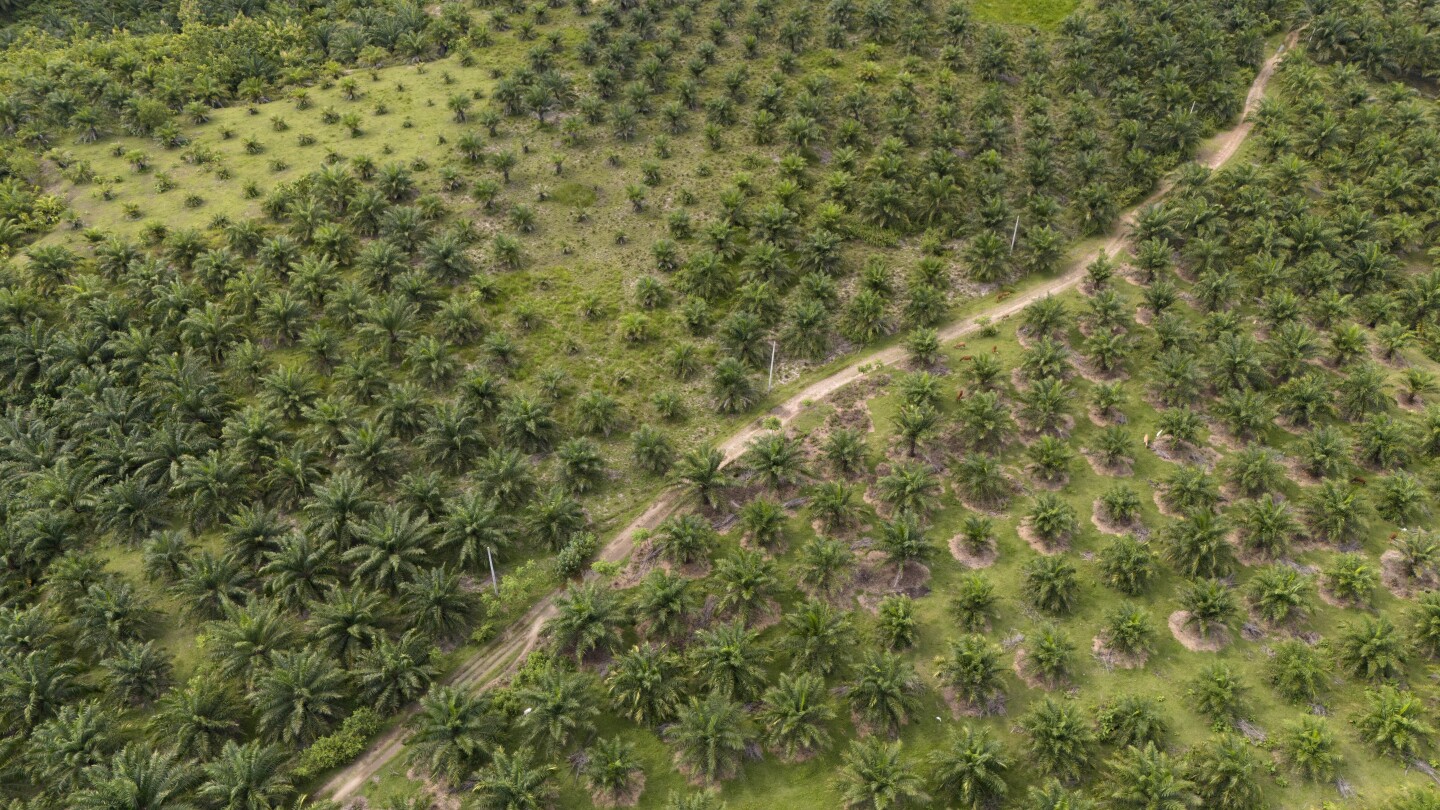JAKARTA, Indonesia (AP) — Years after being felled, vast swathes of Indonesia’s old-growth forests are left sitting idle. And when the land is finally put to use, it’s most often for new palm oil plantations, according to a study published in the Proceedings of the National Academy of Sciences.
But some experts — including the study’s authors — are hoping for a silver lining: The opportunity for Indonesia to expand its agricultural, palm, pulp and other commodities without having to cut down more trees, thus meeting increasing demand from companies and governments for products that didn’t depend on deforestation.
“There’s maybe some hope that if the country can focus on these idle, non-forest lands … it could potentially drop deforestation to zero, and still have a lot of opportunities for economic development,” said Diana Parker, a postdoctoral associate in the University of Maryland’s Department of Geographical Sciences and the lead author of the study.
“Yes, we’ve laid waste to your lands, but think of how much we could exploit them (and you, of course) now!”
Maybe it is part of the plan? Making a new palm oil plantation on conveniently already bare land instead of having to destroy old growth forest? I can imagine that some customers have sustainability clauses in the contracts saying that they will not buy oil from recently cleared land so the solution is simply to wait a but longer sobitvis no longer recently
I thought the soil lacks the nutrients for further use, which is why more and more land gets taken. I could be wrong about this as it is just something I’ve seen/heard and never looked into.
The Earth can heal if people just leave the land alone for some years. But there are too many people wanting too much money for that to happen.
“Some years” is a bit of an understatement for old growth forests. I still very much agree.
I suppose reforestation would be asking too much…
I’m looking forward to the “they cut down all of the Amazon and are only using 20% of the land, but people are seeing economic opportunities” article.
I bet if they do reforestation I bet it would be some monoculture crap job that may as well have been a palm oil field
This is the best summary I could come up with:
But some experts — including the study’s authors — are hoping for a silver lining: The opportunity for Indonesia to expand its agricultural, palm, pulp and other commodities without having to cut down more trees, thus meeting increasing demand from companies and governments for products that didn’t depend on deforestation.
“There’s maybe some hope that if the country can focus on these idle, non-forest lands … it could potentially drop deforestation to zero, and still have a lot of opportunities for economic development,” said Diana Parker, a postdoctoral associate in the University of Maryland’s Department of Geographical Sciences and the lead author of the study.
A vast tropical archipelago stretching across the equator, Indonesia is home to the world’s third-largest rainforest, with a variety of endangered wildlife and plants, including orangutans, elephants and giant forest flowers.
Indonesia also has the world’s largest reserves of nickel — a critical material for electric vehicles, solar panels and other goods needed for the green energy transition.
Since 1950, more than 74 million hectares (285,715 square miles) of Indonesian rainforest — an area twice the size of Germany — have been logged, burned or degraded for development of palm oil, paper and rubber plantations, nickel mining and other commodities, according to Global Forest Watch.
Experts lamented the clearing that has led to idle land, but some wondered if it might wind up being a boon for Indonesia as it contends with governments and companies seeking to eliminate deforestation from commodity supply chains.
The original article contains 629 words, the summary contains 248 words. Saved 61%. I’m a bot and I’m open source!





